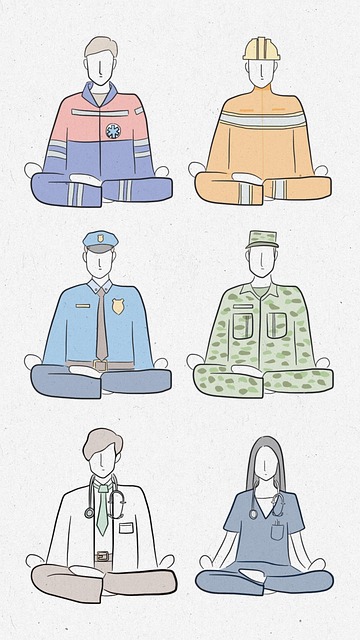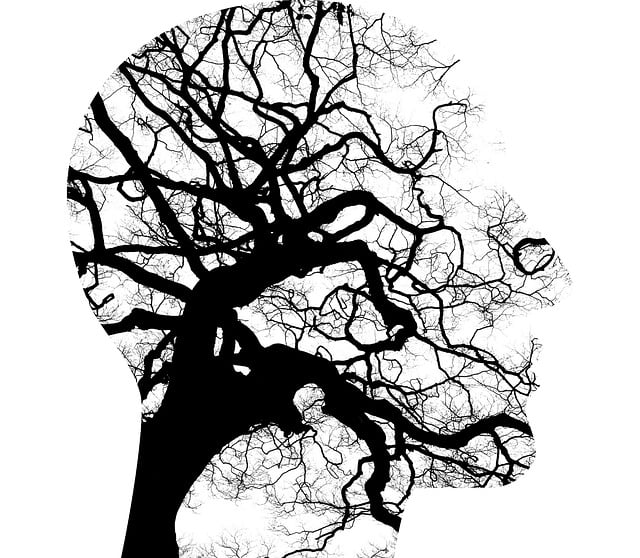Boulder's first responders face high stress and trauma regularly, making them vulnerable to mental health challenges. To mitigate these risks, they receive specialized Boulder First Responders Therapy through workshops, training, and CBT sessions focusing on mood regulation, stress management, and resilience-building. These initiatives empower them with tools like mindfulness, meditation, and communication techniques to maintain emotional stability both personally and professionally, ensuring their well-being and enabling them to continue their critical work.
In the demanding field of first response, managing one’s mood is crucial for Boulder’s heroes. This article delves into effective mood regulation strategies specifically tailored for first responders, addressing the unique challenges they face. We explore foundational knowledge, starting with understanding how stress and trauma impact emotional well-being. Drawing from evidence-based practices, we present techniques like cognitive behavioral therapy and mindfulness meditation to foster calm and clarity. Additionally, we discuss building resilience through coping strategies designed to support Boulder first responders in therapy.
- Understanding Mood Regulation: A Foundation for First Responders
- The Impact of Stress and Trauma on Emotional Well-being
- Cognitive Behavioral Techniques for Effective Mood Management
- Mindfulness and Meditation Practices for Calm and Clarity
- Building Resilience: Coping Strategies for Boulder's First Responders
Understanding Mood Regulation: A Foundation for First Responders

Understanding Mood regulation is a cornerstone for Boulder First Responders facing the unique challenges of their high-stress roles. Effective mood regulation strategies empower them to manage intense emotions, prevent burnout, and enhance resilience in the face of trauma and crisis situations. Therapy plays a pivotal role here, offering specialized support tailored to the emotional healing processes of first responders.
Boulder’s First Responders can benefit from therapy sessions designed to facilitate coping skills development. These programs focus on teaching them effective strategies to navigate stress, anxiety, and depression. Mental health education is also integral, equipping them with knowledge about the impact of trauma and providing tools to maintain their own mental well-being. Such initiatives contribute to fostering a culture of resilience among first responders, ensuring they can continue their critical work with sustained emotional stability.
The Impact of Stress and Trauma on Emotional Well-being

The impact of stress and trauma on emotional well-being cannot be overstated, particularly for individuals such as Boulder First Responders who frequently encounter high-stress and traumatic situations. Prolonged exposure to these intense experiences can lead to a range of mental health challenges, including anxiety, depression, and post-traumatic stress disorder (PTSD). In the case of first responders, the unique nature of their work often results in chronic stress that, if unaddressed, can have severe consequences for both personal and professional lives.
Effective mood regulation strategies are therefore essential for maintaining emotional resilience. Through initiatives like Stress Management Workshops Organization programs and Mind Over Matter Principles training, healthcare providers can gain valuable tools to cope with stress and trauma. Additionally, Healthcare Provider Cultural Competency Training plays a crucial role in fostering an understanding of the complex interplay between cultural factors and mental health, enabling more nuanced support for individuals dealing with traumatic experiences.
Cognitive Behavioral Techniques for Effective Mood Management

Cognitive Behavioral Techniques (CBT) offer a powerful set of tools for first responders in Boulder who are looking to manage their moods effectively. This evidence-based approach focuses on identifying and changing negative thought patterns and behaviors that can contribute to stress, anxiety, and low mood. By challenging unhelpful cognitions and replacing them with more realistic and adaptive ones, individuals can gain a greater sense of control over their emotions. CBT is particularly beneficial for first responders who often face traumatic situations, as it helps build mental resilience and coping mechanisms.
Incorporating these techniques into therapy sessions, whether individually or in groups, can significantly enhance the overall well-being of Boulder First Responders. This approach encourages self-reflection and equips individuals with strategies to manage stress, improve self-esteem, and develop better social skills (Mental Health Policy Analysis and Advocacy). Through CBT, first responders can learn to navigate challenging situations with enhanced emotional regulation, ensuring they maintain a healthy work-life balance and promote positive interactions within their communities.
Mindfulness and Meditation Practices for Calm and Clarity

Incorporating mindfulness and meditation into your daily routine can be a powerful tool for first responders in Boulder looking to regulate mood and maintain mental wellness. These practices encourage individuals to focus on the present moment, fostering calmness and clarity amidst stressful situations. Research shows that regular mindfulness exercises can reduce symptoms of anxiety and depression while enhancing overall resilience. By dedicating just a few minutes each day to mindful breathing or guided meditations, first responders can cultivate a deeper sense of self-awareness and emotional balance.
Through Boulder First Responders Therapy, individuals can access specialized mental wellness coaching programs designed to support their unique needs. These programs often include empathy-building strategies, helping professionals develop a stronger connection with themselves and others. By integrating mindfulness and meditation into a well-rounded self-care routine, first responders can improve their ability to manage stress and effectively respond to challenges, ultimately promoting better mental health in both personal and professional settings.
Building Resilience: Coping Strategies for Boulder's First Responders

Boulder’s first responders often face high-stress situations, demanding a remarkable level of emotional resilience. Building resilience is an essential aspect of coping strategies for these brave individuals. Therapy plays a pivotal role in helping first responders process their experiences and develop effective coping mechanisms. Through therapy sessions, they can learn valuable tools to manage stress, anxiety, and trauma, fostering inner strength development.
By incorporating mind over matter principles, first responders gain a deeper understanding of their emotional responses. This empowers them to cultivate confidence boosting strategies, enabling them to navigate challenging scenarios with enhanced composure. The process involves exploring effective communication techniques, mindfulness practices, and healthy coping mechanisms to ensure the well-being and resilience of Boulder’s first responders in the face of adversity.
For Boulder’s first responders, effective mood regulation strategies are essential tools for maintaining emotional well-being in the face of stress and trauma. By combining cognitive behavioral techniques with mindfulness practices, these professionals can enhance their resilience and cope with the challenges they encounter. Accessing specialized therapy tailored to their unique needs is a crucial step towards fostering mental health and ensuring they have the resources to navigate life’s difficulties. Through these strategies, first responders can find calm amidst chaos and maintain clarity in their critical roles.













